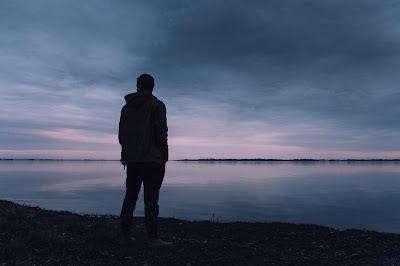A few weeks ago, I sat down (virtually) with Semerian Sankori, founder of Patinaai Osim. It was the end of the day and I was suffering from information overload—made worse by how bad the news is (IYKYK). It didn’t take long for me to sit upright and be fully engaged. I hope her story gives you as much hope as it did me.
Named after an endearment, “Patinaai Osim”—loosely
translated from Maasai as “the one who brings me joy,” often used by
women for their children—this NGO envisions a world where children in rural
Kenya have the same opportunities as their peers elsewhere.
“Why do we have learners aged 12 still in villages just
starting ECD (Early Childhood Development)? Why do our schools not have
computers? Why do children under 10 walk 7 kilometres to school? Why do we have
only four teachers in a big school?”
These are the questions that drive Sankori. A proud member of the Maasai community she serves, she was fortunate to attend boarding school from the age of 10—an opportunity that shielded her from the severe resource constraints of local schools. Today, she channels that privilege into purpose, leading an organisation grounded in five core pillars:
- Education access and equity
- Livelihoods and economic resilience
- Sexual and reproductive health and rights (SRHR)
- Climate action and environmental justice
- Culture and indigenous knowledge
Sankori highlights one of Kenya’s biggest educational
challenges: chronic under-resourcing. While the Competency-Based Curriculum
(CBC) was designed with good intentions, it assumes a level of parental
literacy and access that many rural families simply don’t have. Materials
needed for projects (in school and for homework), like manila paper and
crayons, tend to be hard to find. Many schools do not even have the electricity
they need!
She points out,
“In everything we do, we ensure that our
indigenous knowledge guides us. We respect where we are, the communities, their
culture and norms. The younger generation is losing so much, there’s friction
between elders and youth. Issues like climate change? Indigenous leaders knew
how to deal with this many centuries ago. Maasai depended on livestock that
depended on the earth and natural resources.”
This philosophy shapes Patinaai Osim’s approach: listen
and empower. Every intervention begins with listening—understanding
that each rural community has its own unique challenges.
The organisation’s education interventions began with
primary schools. When national exam results consistently placed local schools
at the bottom, Patinaai Osim conducted a baseline survey—and the findings were
sobering. Some Grade 8 pupils, preparing for national exams, couldn’t read a paragraph.
When teachers asked questions, no hands went up.
In response, with support from their partner GRIC, the team
launched a numeracy and literacy programme using the Teaching at the
Right Level (TaRL) model for Grades 3–5. The programme strengthens
foundational literacy for Grade 2-4 learners through a fun, level-based model inspired by the TaRL approach.
Over 30–50 days, learners participate in short after-school, weekend, or
holiday sessions. They are first assessed and grouped by ability (beginner,
word, or paragraph level) rather than grade or age.
Assessments are done in Maasai, Swahili, and English. As Sankori says, “Who says if you can’t speak English you’re dumb? They’re not dumb—they’re learning a new language. And once we start in Maasai, they pick up English so much faster.”
The results have been remarkable. Learners who once sat
silent now compete to read aloud in class. Partner schools now have libraries
and remedial sessions focused on play that children look forward to.
Teachers, too, have been empowered to innovate using local
resources creatively—and parental engagement has soared. But slowly, that began
to change. Today, parent-teacher meetings are almost always full—and not just
with mothers. In Maasai culture, children have long been seen as belonging to
women, and education was often viewed as a woman’s responsibility. Patinaai
Osim recognised this and worked within that cultural reality rather than
against it. By inviting dialogue, respect, and shared ownership, they’ve helped
shift how families see education. Now, fathers are engaged too.
After the success of its primary school pilot, Patinaai Osim expanded its focus to Early Childhood Care and Development Education (ECCDE) and childcare centres.
“If you gave me one million dollars and told me to spend it
on one thing,” Sankori smiles, “it would all go to foundational learning.”
In many rural Maasai communities, young children are kept home. There is a long journey to school, and human-wildlife conflict in the area means this journey can often be unsafe for younger children who might not be as fast or resourceful as their older peers. The organisation has worked with this reality: now: communities donate spaces (often churches), which are transformed into early learning centres equipped with materials and teachers.
Just weeks ago, 100 + learners graduated from these
centres and joined primary schools—already reading and counting, with no need
for remedial support from a programme like TaRL.
For children aged 0–3, especially those born to teen
mothers, Patinaai Osim builds informal childcare networks. Older women in the
community care for the babies, freeing young mothers to work and provide for
their families.
“There’s a girl in our scholarship programme—an orphan
living with her grandmother, who’s part of our tailoring project,” Sankori
shares. “She’s around 11 or 12 now, and she was top of her class last week. I’m
so proud of her. I can’t wait to see how far she’ll go.”
Patinaai Osim’s work is currently centred in Kajiado County,
but the organisation has its sights set on scaling to Narok, where similar
challenges—and an even higher rate of teen pregnancy—persist.
In a world that often rewards short-term thinking, Sankori’s
vision is refreshingly long-term. She is, quite literally, planting trees
whose shade future generations will sit under.
Interested in learning more or getting involved?
Reach out to Patinaai Osim at info@patinaaiosim.org




































